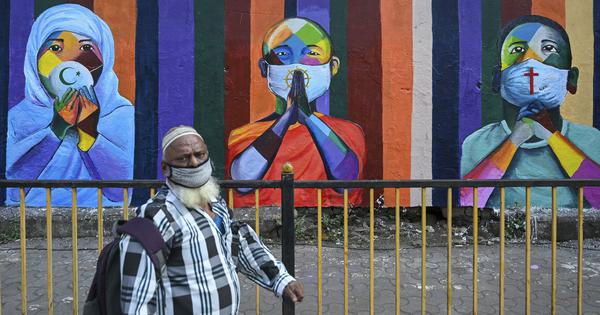Strong sentiments emerge over the state of secularism and societal behavior in contemporary India.
Responses to articles in Scroll.in reflect a diverse range of opinions and emotions surrounding current social and political issues. One notable response from Nivedita Prakasham resonates with many, expressing concern about the state of secularism under the current government. The writer highlights various actions taken by authorities, such as renaming states and advocating for a ‘Hindu Rashtra’, which they argue polarize society and threaten long-standing expressions of pluralism.
Prakasham’s recollection of a trekking experience serves as a poignant example of this societal shift. During the trek, a group of young participants from Mumbai and Pune repeatedly chanted ‘Jai Shri Ram’ and pressured non-Hindu individuals to join in, resorting to bullying when they resisted. This incident left Prakasham feeling like a minority, despite identifying as a Hindu, and underscores a troubling atmosphere where dissent is stifled. The writer’s fear of expressing an opposing viewpoint illustrates a departure from a truly secular environment.
The nostalgia for a more harmonious past is palpable in Prakasham’s comments, where she recalls school days filled with celebration and mutual respect for differences. The stark contrast to the current climate of rising hatred is troubling, as it mirrors a broader global phenomenon. The writer poses a crucial choice: to either fuel division or promote harmony, emphasizing that history will remember the path chosen.
In a separate commentary regarding the Babri Masjid case, Ajay S raises a query about the interpretation of a specific clause from the Supreme Court’s judgement. The clause outlines the legal standards required to establish title to land, specifically noting the lack of evidence regarding the historical context of the mosque’s construction. Ajay seeks clarification on how to understand this aspect of the judgement, which underscores the complexities surrounding the case.
Rajesh Kher suggests that Scroll should consider hosting scientist-poet Gauhar Raza for a virtual talk following the cancellation of his event at IIT-BHU due to faculty pressure. This highlights the ongoing challenges faced by individuals in academia and the arts when navigating institutional pressures.
Another reader, Sukumar Ghosh, commends the Delhi High Court’s decision to award compensation to journalist Rajdeep Sardesai for defamatory posts, emphasizing the importance of upholding journalistic integrity and accountability.
Robert Kharkongor praises a detailed report on Bangladesh’s indigenous Khasis, expressing hope that it reaches a wide audience. The sentiment showcases solidarity among communities and the importance of raising awareness about indigenous issues.
Lastly, Rita Jhangiani responds to an article discussing discriminatory practices in Mumbai highrises, proposing practical solutions to improve conditions for women workers. She suggests allowing women workers to use residents’ elevators and incorporating design changes to enhance safety, reflecting a desire for more equitable treatment in everyday life.








